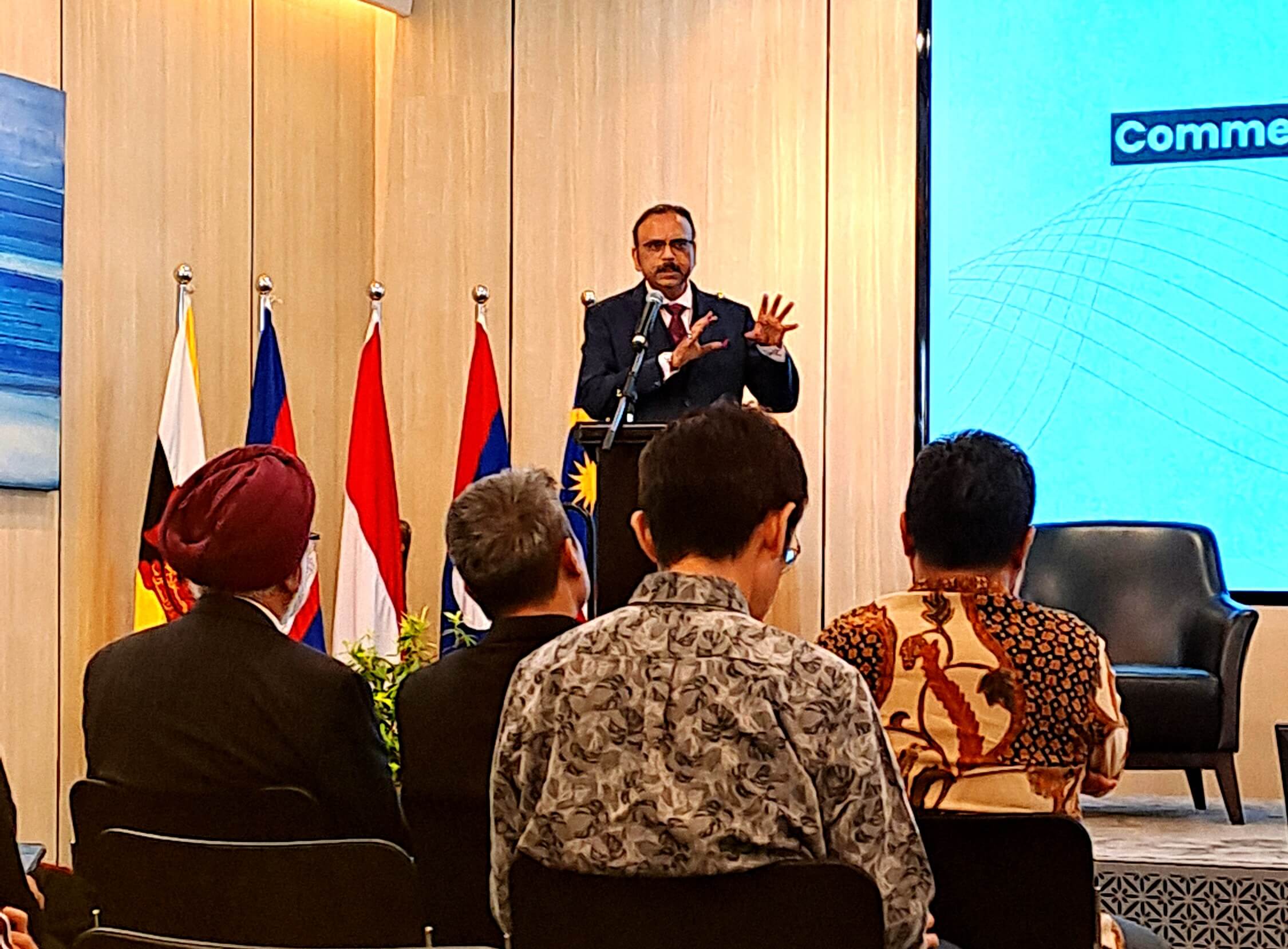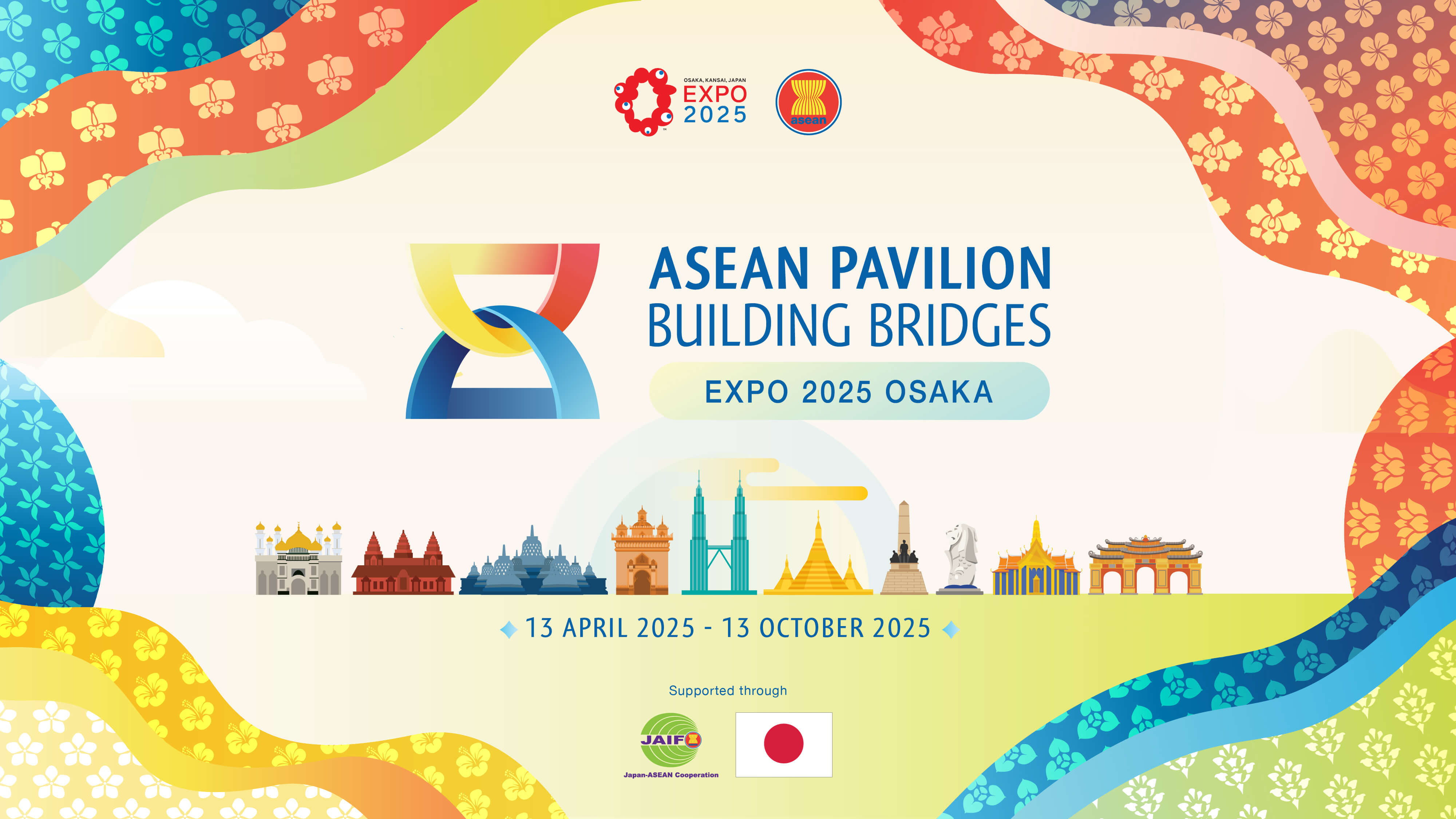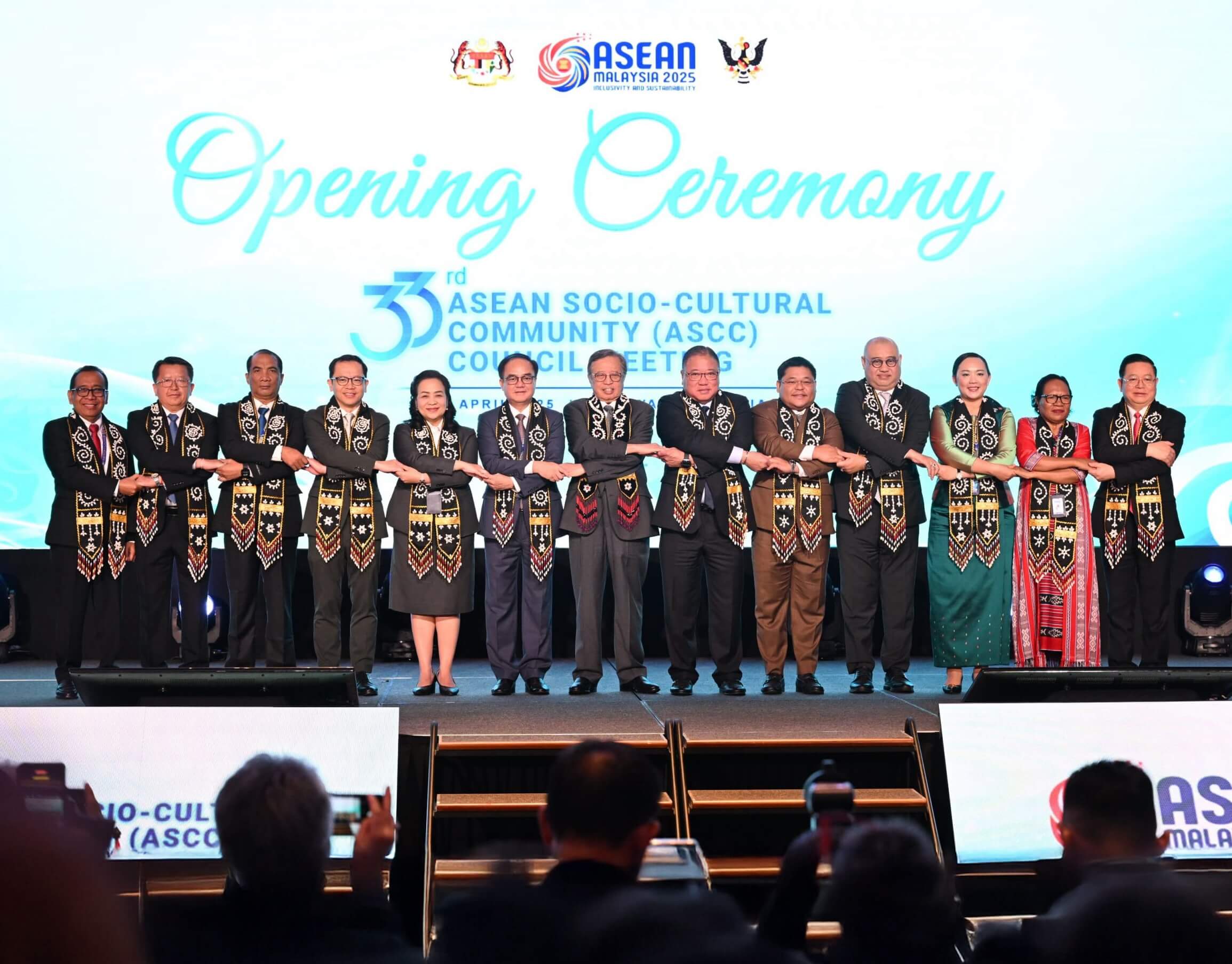




On 6 February 2025, the Mission of India to ASEAN and the Center for Strategic and International Studies (CSIS) Indonesia hosted a seminar titled “Commemorating a Decade of India’s Act East Policy: Reflections and the Way Forward for ASEAN-India Relations.”
Ambassador of India to ASEAN Jayant Khobragade spoke on the keystones of India’s Act East Policy: commerce, connectivity, culture, and capacity building.
He noted the growth of trade between ASEAN and India, with ASEAN becoming India’s second-largest trading partner over the past three consecutive years— next only to the European Union, but ahead of the United States and China. Ambassador Khobragade added, “If we look at investments, 20 per cent of inbound investment and 20 per cent of outbound investment also happens with ASEAN.”
ASEAN-India connectivity has also strengthened, with direct flights between India and eight Member States and the ongoing work to complete and operationalise the India–Myanmar– Thailand Trilateral Highway. “ASEAN has also become a very popular destination for India’s tourists. Around 16 to 17 per cent of India’s outbound tourists visit ASEAN Member States,” he said.
Ambassador Khobragade also underlined ASEAN and India’s shared history and culture and India’s commitment to enhancing this link. “India has been participating in the restoration of monuments, such as the Angkor Wat,” he said. “We also support the ASEAN Cultural Heritage List project and conduct various activities like the ASEAN-India Artists’ Camp, Music Festival, and Youth Summit.”
Ambassador Khobragade emphasised India’s commitment to ASEAN centrality. He noted, “Since we became summit-level partners in 2002, India’s leadership has participated in all ASEAN summits, including the East Asia Summit and the ASEAN Defence Ministers Meeting Plus, to reinforce ASEAN centrality.”
Deputy Secretary-General of ASEAN for Community and Corporate Affairs Nararya Soeprapto affirmed the robust and multifaceted partnership between ASEAN and India. “India has been a steadfast partner in promoting regional stability. Our cooperation in areas such as maritime security, counter-terrorism, and cybersecurity has strengthened over the years,” he said.
He continued, “Our culture and people-to-people exchanges are deeply rooted in centuries-old civilisational linkages. The Act East Policy has further strengthened our bonds through educational cooperation, tourism promotion, and youth exchange, to name a few.”
Deputy Secretary-General Soeprapto said the next decade presents opportunities and challenges for both regions. He noted, “In an era of many global uncertainties, it is imperative for ASEAN and India to work together to build a resilient, inclusive, and sustainable future.”
Yose Rizal Damuri, executive director of CSIS Indonesia, said the seminar provides an opportunity for participants to “reflect on the achievements of India’s Act East Policy over the past decade and chart a way forward for ASEAN-India relations.”
Three expert panellists were invited to weigh in on India’s Act East Policy, including Gurjit Singh, former Ambassador of India to ASEAN and Indonesia; Yanitha Meena Louis, analyst at Malaysia’s Institute of Strategic and International Studies; and CSIS’s Yose Rizal Damuri.
One panellist suggested that a modern ASEAN-India relationship should be based on principles of reciprocity and complementarity. For example, ASEAN could enhance its efforts to promote India as a tourism and higher education destination while deepening its involvement in India’s Global South initiatives.
Another panellist highlighted the importance of reconciling India’s self-perception, ASEAN’s view of India, and the image India aspires to project. The perception of India’s role in ASEAN varies, ranging from that of a balancer to first responder, to development partner. ASEAN and India’s ties would advance meaningfully if both sides addressed these perception gaps and clarified their strategic expectations.
Finally, a panellist suggested that ASEAN and India build stronger supply chains, prioritising the trading of intermediate goods rather than final products for domestic consumption—emerging industries, such as green energy and space present opportunities for cooperation. Strong supply chains within the ASEAN-India corridor will mitigate risks from global disruptions and enhance the economic resilience of both regions.








